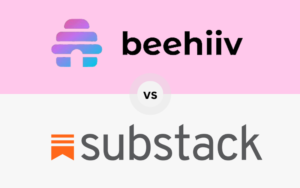Introduction:
The phrase “Make money, not friends hoodie” embodies a stark ethos, emblematic of a culture that prioritizes financial gains over social bonds. In a world where success is often equated with monetary achievements, this statement encapsulates a mindset that has permeated various aspects of contemporary life.
Origins and Usage:
The phrase “Make money, not friends” likely emerged as a colloquial expression reflecting the prioritization of financial success. While its exact origins are unclear, it has become a popular catchphrase in entrepreneurial circles, self-help literature, and online discourse. The phrase underscores a shift in values, emphasizing individualism and economic self-interest.
Meanings and Interpretations:
At its core, “Make money, not friends” suggests that one should focus on personal financial growth rather than investing time and energy in building interpersonal relationships. However, interpretations of this statement vary widely. Some view it as a pragmatic approach to achieving success in a competitive world, while others criticize it for promoting materialism and neglecting human connection.
Cultural Context:
The cultural context in which “Make money, not friends” arises is crucial for understanding its significance. In capitalist societies driven by consumerism and profit motives, the pursuit of wealth often takes precedence over other values. This ethos permeates popular culture, influencing attitudes towards work, success, and social interactions.
Values Implicit in the Phrase:
Implicit within “Make money, not friends” are certain values and assumptions about the nature of success and happiness. It reflects a belief in the importance of financial independence, self-reliance, and individual achievement. However, it also raises questions about the moral implications of prioritizing material wealth over human relationships and community bonds.
Societal Implications:
The prevalence of the “Make money, not friends” mentality can have profound societal implications. On one hand, it may fuel economic growth and innovation by encouraging entrepreneurial risk-taking and ambition. On the other hand, it may contribute to social isolation, inequality, and a sense of alienation as individuals prioritize economic pursuits over interpersonal connections.
Critiques and Counterarguments:
Critics of the “Make money, not friends” philosophy argue that it fosters a culture of greed, selfishness, and moral relativism. They contend that true fulfillment comes from meaningful relationships, altruism, and contributing to the common good. Additionally, they point out the psychological toll of prioritizing material wealth over emotional well-being.
Conclusion:
In conclusion, “Make money, not friends” encapsulates a complex interplay of values, attitudes, and societal norms. While it reflects the pursuit of financial success in a competitive world, it also raises profound questions about the nature of happiness, fulfillment, and the ethical responsibilities that come with wealth. Ultimately, the significance of this phrase lies in its ability to spark dialogue and introspection about the values that shape our lives and communities.





